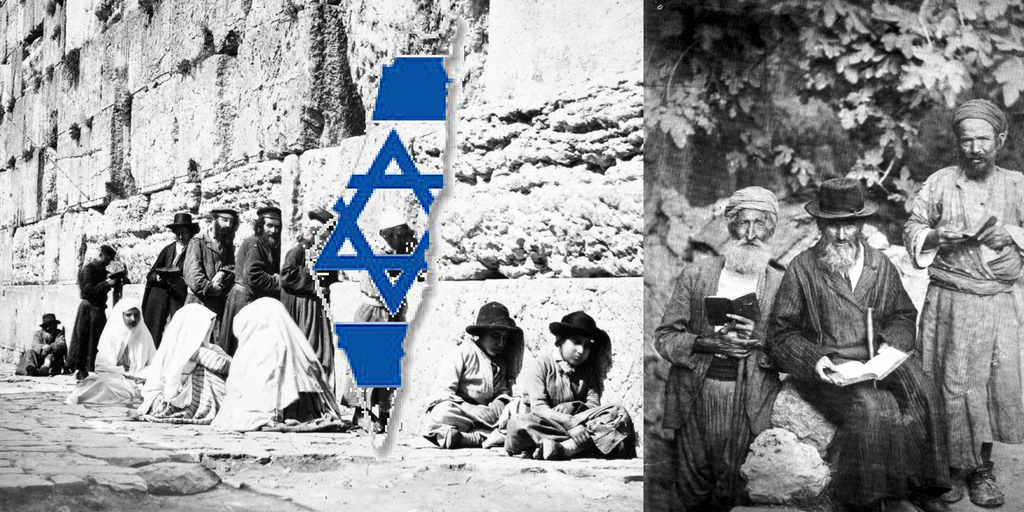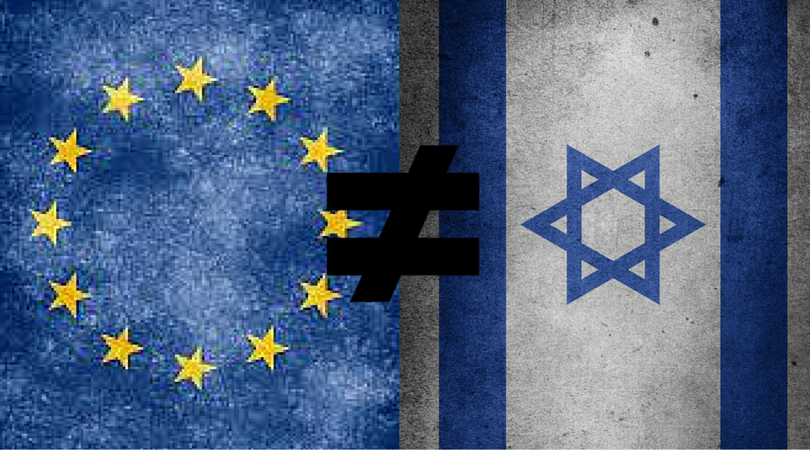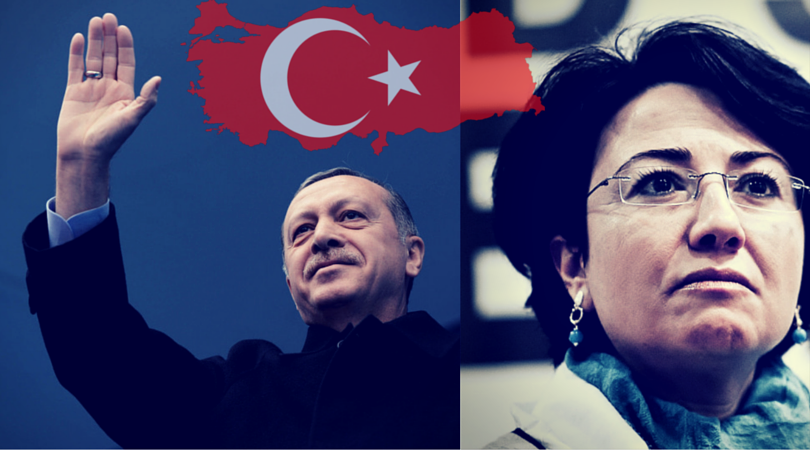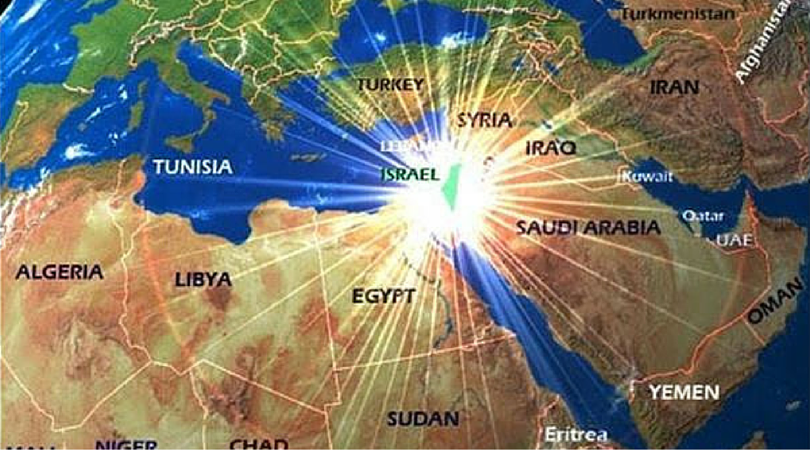This week’s Torah portion is the Parsha of Mas’ei.
“You shall possess the land and you shall dwell in it, for to you have I given the land to possess it.” (BAMIDBAR 33:53)
The Ramban offers a lengthy explanation of this verse, asserting that the mitzvah for the Jewish people to conquer and reside within the Land of Israel is a positive commandment of great consequence to the overall Hebrew mission.
“In my opinion this is a positive commandment, in which He (HaShem) is commanding them (Israel) to dwell in the land and inherit it, because He has given it to them and they should not reject the inheritance of HaShem. Thus if the thought occurs to them to go and conquer the land of Shinar or the land of Assyria or any other country to dwell therein, they would be transgressing the command of G-D. And that which our rabbis have emphasized (Ketubot 110b), the significance of the commandment of dwelling in the Land of Israel and the prohibition against leaving it, and that they even considered a woman who does not want to ascend with her husband to live in the Land of Israel [as a ‘rebellious wife’] and likewise the man – the source of all these statements here (in this verse) where we have been given this commandment, for this verse constitutes a positive commandment. And this commandment is repeated in many places, such as ‘Come and possess the land’ (DEVARIM 1:8).”
The Ramban demonstrates the above verse to be primarily teaching the eternal mitzvah for the Jewish people to assert political sovereignty over the Land of Israel and to reside within its borders.
In his supplement to the Rambam’s Sefer HaMitzvot, the Ramban teaches that it is a Torah commandment in every generation that the Nation of Israel take control of and inhabit the entire Land of Israel.
“This (a war to liberate Eretz Yisrael) is what our Sages call milḥemet mitzvah (obligatory war). In the Talmud (Sotah 44b) Rava said, ‘Yehoshua’s war of liberation was an obligatory duty according to all opinions.’ And do not err and say that this precept is the commandment to vanquish the seven nations… this is not so. We were commanded to destroy those nations when they fought against us and had they wished to make peace we could have done so under specific conditions. Yet we cannot leave the land in their control or in the control of any other nation in any generation… Behold, we are commanded with conquest in every generation… this is a positive commandment which applies for all time… And the proof that this is a commandment is this: ‘They were told to go up in the matter of the spies: ‘Go up and conquer as HaShem, G-D of your fathers, has spoken to you. Do not fear and do not be discouraged.’ And it further says: ‘And when HaShem sent you from Kadesh Barnea saying, Go up and possess the land which I have given you.’ And when they did not go up, the Torah says: ‘And you rebelled against the Word of G-D, and you did not listen to this command.’” (Positive Commandment 4 of the Ramban’s supplement to the Rambam’s Sefer HaMitzvot)
The Ramban asserts that the conquest of Eretz Yisrael is a mitzvah for Israel in every generation and that we are forbidden from allowing any part of our country to fall into – or remain under – gentile control. It is found in the Shulḥan Arukh that all of the arbitrators of Torah Law (Rishonim and Aḥronim) agree with the Ramban concerning this issue.
“All of the Poskim, both Rishonim and Aḥronim, decide the Law in this fashion on the basis of the Ramban.” (Shulḥan Arukh, Even HaEzer section 75, Pitḥei Tshuva 6)
Although the Ramban (in his commentary to BAMIDBAR 33:53) acknowledges Rashi’s warning that Israel’s ability to survive and prosper in our homeland depends on the nation’s willingness to disinherit the gentiles who rule the country prior to our return, he offers a more lenient approach regarding the actions we must take against non-Jews merely inhabiting our land.
While many authorities assert that upon our return home from exile, Israel must drive out the gentiles in possession of our land, the Ramban insists that peace could be achieved between Israel and these people under certain conditions so long as the Hebrew Nation possesses undisputed sovereignty over the territory. Rashi appears to dispute this position, noting the following verse:
“But if you do not drive out the inhabitants of the land before you, those of them whom you leave shall be pins in your eyes and a surrounding barrier of thorns in your sides, and they will harass you upon the land in which you dwell.” (BAMIDBAR 33:55)
On this verse, Rashi explains that “pins in your eyes” means “liteidot ham’nakrot eineikhem” – that sticks will be driven into your eyes, meaning that the wisdom of Israel’s leadership will be neutralized, such that they will be unable to see or understand that which a child can clearly see and understand. There will be a situation in which Jews protect themselves behind fences and walls, which “enclose and imprison them such that none can come in or leave.”
The holy Ohr HaḤaim supports Rashi’s explanation of this verse, commenting that: “Not only will they hold onto the part of the land that you have not taken, but the part which you have taken and settled as well. They shall cause you trouble regarding the part that you live in, saying ‘Get up and leave it.’”
The Ramban’s more nuanced distinction between peoples wielding dominion over the Jewish homeland and those who merely dwell peacefully in the country under Hebrew sovereignty helps account for the presence of Israel’s Kenite allies in ancient times. It also takes into consideration the Torah’s many references to the compassion we must display towards the stranger in our land, clarifying the special obligations Israel has to a Ger Toshav. By attempting to assert political control over portions of Eretz Yisrael, however, a gentile could easily move himself from one category to the other.
While Israel was clearly obligated, upon our return home in modern times, to fight a war of liberation to drive British Empire from our soil, the more contentious question remains how we should relate to the Palestinian national movement that professes to speak on behalf of all Palestinians while seeking to appropriate the Land of Israel from the Jewish people.
The Gaon of Vilna sheds light on this question in his commentary to ḤABAKUK, where he illuminates the concept of Peleshet and the uniqueness of its historic national role. The Gaon points out that the verse in BEREISHIT 10:14, which introduces the Philistines to the stage of history, does not describe their birth as the Torah describes the birth of other peoples.
“And Mitzraim begot Ludim, Anamim, Lehavim, Naphtuḥim, Patrusim, and Casluḥim, whence the Pelishtim (Philistines) came forth, andCaphtorim.” (BEREISHIT 10:13-14)
The Gaon explains that the birth of the Philistines, which is described in different language than the birth of other nations, was an unnatural occurrence and that they are entirely absent from the stage of world history with the exception of specific generations in which they serve their unique function. When the Nation of Israel enters our homeland in order to establish the Hebrew Kingdom – the vehicle through which all of humanity will be elevated to unparalleled blessings – the Philistines appear on the scene to try and prevent this kingdom from being established. This was the case when our patriarch Avraham first entered the land (there was a “land-for-peace” deal aggressively solicited by Avimelekh of Grar), it occurred when his son Yitzḥak was faced with Philistine aggression and it was true throughout the period of the Judges up until the secure establishment of the Davidic dynasty when Israel finally implemented full dominion over the country.
Peleshet then inexplicably disappeared from history until modern times when it once again attempts to obstruct the establishment of G-D’s kingdom. The Gaon explains that without the necessary force of Peleshet, Israel would be unable to rise up to our essential mission and realize the true significance of Jewish sovereignty in our homeland. HaShem places this force into our world as a catalyst for Israel to reach our full national potential.
The truth in the Gaon’s words is evident today. As a result of our difficult struggle with Palestinian nationalism – a nationalism that materialized largely upon our return home and solidified in reaction to misguided Israeli policies – we have failed to simply exist as a normal country but have instead been confronted with grueling questions of identity. The brutal conflict has forced us to examine who and what we truly are, as well as the core reason for returning home and establishing a state. The ostensibly legitimate claims of another people to our land forces us to question not only our innate connection to our soil but also the ideal place of a non-Jew in our society and Israel’s unique national function on the world stage. The grievances and accusations of another people against our state – often equating Zionism with racism or Western colonialism – compel us to embrace our indigeneity and authentic Semitic identity. By forcing out the bigger answers to the difficult questions they create, the force of Peleshet causes Israel to understand what it is that we are actually fighting for. And by the time we come to terms with our unique historic role and discover a genuine Hebrew approach for relating to the Other in our society, we will have already grasped the true purpose of the kingdom that will lead humankind to a world of total blessing.





